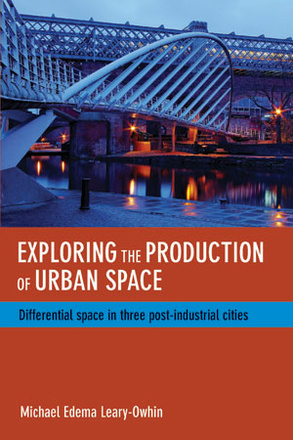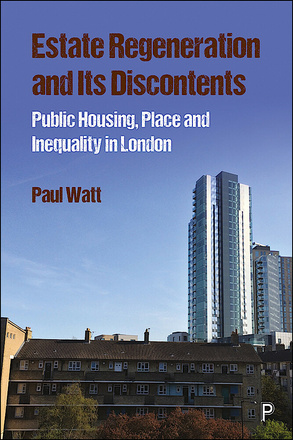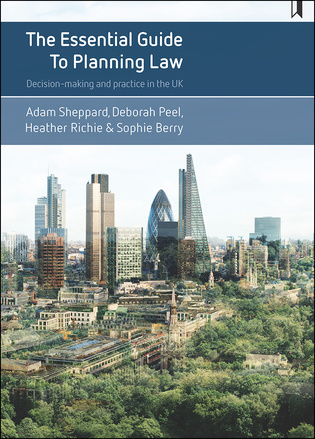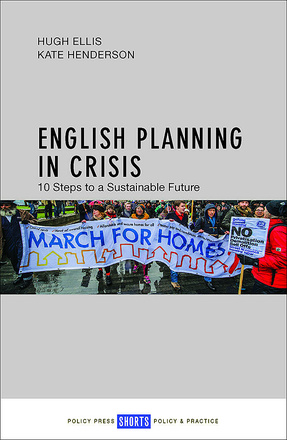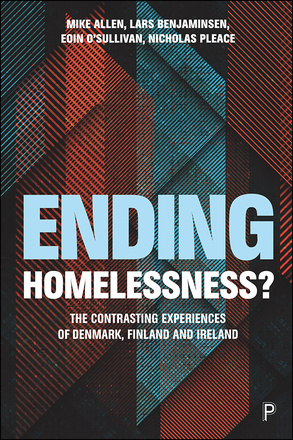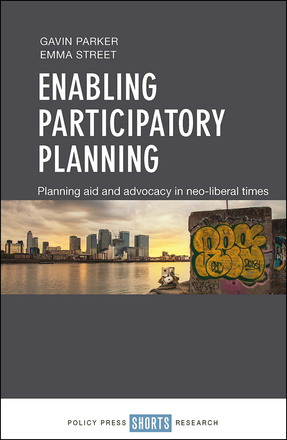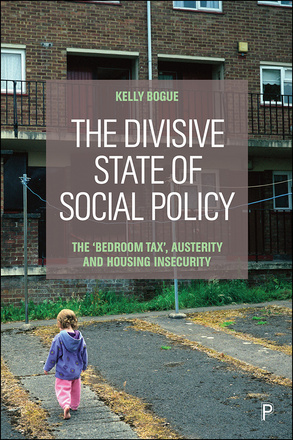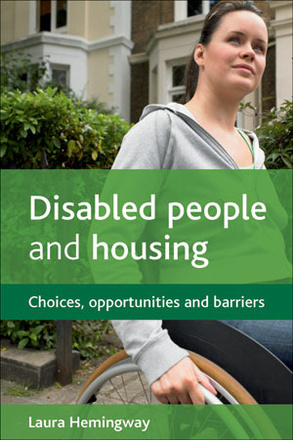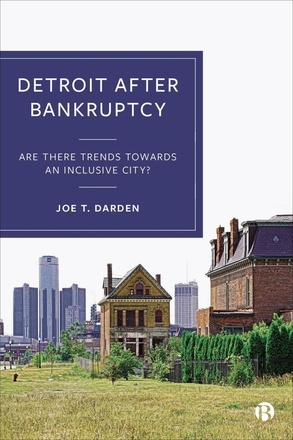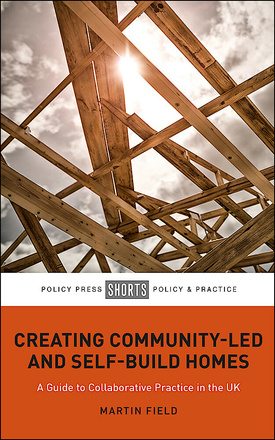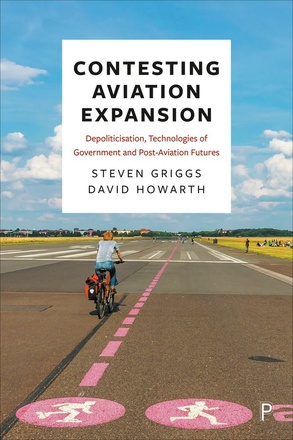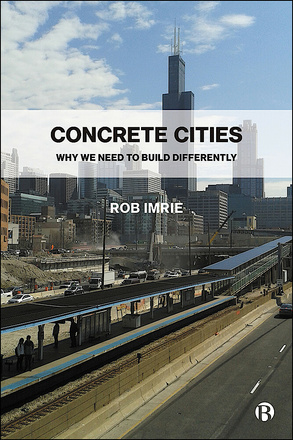Planning
Exploring the Production of Urban Space
Differential Space in Three Post-Industrial Cities
This important book engages critically with Lefebvre’s spatial theories and challenges recent thinking about the nature of urban space. Research in three iconic post-industrial cities in the UK and North America, explains how urban public spaces, including differential space are socially produced.
Estate Regeneration and Its Discontents
Public Housing, Place and Inequality in London
Using original interviews with estate residents in London, Watt provides a vivid account of estate regeneration and its impacts on marginalised communities in London, showing their experiences and perspectives. He demonstrates the dramatic impacts that regeneration and gentrification can have on socio-spatial inequality.
The Essential Guide to Planning Law
Decision-Making and Practice in the UK
Written in an accessible style, this comprehensive yet concise text book gives students essential background and contextual information supported by practical and applied discussion to help even those with no planning law knowledge engage in the subject and understand planning in the real world.
English Planning in Crisis
10 Steps to a Sustainable Future
This book is a manifesto for a new planning system in England. Reflecting on controversial new Government reforms and deregulation, the authors draw on policy and practice examples from across the UK and internationally to challenge the current English system and ignite debate about its future.
Ending Homelessness?
The Contrasting Experiences of Denmark, Finland and Ireland
Providing an in-depth exploration of the experiences of Ireland, Denmark and Finland in their various initiatives designed to end homelessness, this book presents an authoritative comparative account of policies and strategies that have worked, along with an exposition of those that have not.
Enabling Participatory Planning
Planning Aid and Advocacy in Neoliberal Times
The Divisive State of Social Policy
The ‘Bedroom Tax’, Austerity and Housing Insecurity
Few aspects of austerity politics have been as divisive as the ‘Bedroom Tax’. This book provides a vivid and authoritative assessment of the impact of social housing reform on tenants and society, using personal stories from one estate to explore its connections to issues including housing precarity, poverty and damage to social networks.
Disabled people and housing
Choices, opportunities and barriers
By examining policy, meanings of 'home' and potential barriers to housing options, this book provides a comprehensive overview and investigation of housing issues for disabled people from a social model perspective.
Detroit after Bankruptcy
Are There Trends towards an Inclusive City?
Detroit is the first city of its size to become bankrupt and policy-makers have argued that, since then, it has entered a ‘new beginning’. This book analyses whether Detroit’s patterns of inequality on race and class lines still exist and whether the city is truly reversing its decline.
Creating Community-Led and Self-Build Homes
A Guide to Collaborative Practice in the UK
Examines ‘self-build housing’ and ‘community-led housing’, discussing the commonalities and distinctions between these in practice, and what could be learned from other initiatives across Europe.
Contesting Aviation Expansion
Depoliticisation, Technologies of Government and Post-Aviation Futures
This book analyses the strategies used by public authorities to expand the UK aviation industry in relation to growing political opposition and the negative impacts on local communities and climate change. The authors promote a radical rethinking of our attitudes to flying, laying the ground for a more sustainable future.
Concrete Cities
Why We Need to Build Differently
Global building and construction cultures are hard-wired to constructing too much, too badly, with major social and ecological consequences. Rob Imrie calls us to build less and to build better as a pre-requisite for enhancing welfare and well-being.







